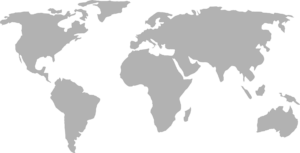As mentioned at the beginning of this podcast, we are all indebted to John and Steve for their regular, weekly discussions.
Their podcasts offer the only fair and balanced coverage of The New Cold War that you will find anywhere in the western media. Rather than a simple regurgitation of the War Party line, John and Steve consider the conflict from the historical perspective of each side. Thus, in listening to them over the past four years, I almost feel as if I have participated in a graduate-level Russian Studies class.
Download Podcast (Right Click + ‘Save As’)
To be certain that this discussion is as widely-heard as possible, I’ve taken the additional step of transcribing portions of the audio.
We begin with Professor Cohen providing some historical background regarding Ukraine, Russia and the run-up of this New Cold War.
I’ve been working in print and broadcast about the onset of a new Cold War since late 1990s because I saw the Clinton administration’s intrusive policies and then Yeltsin’s Russia as generating a backlash that would lead the two countries to a replication or continuation of the 45-year cold war that Reagan and Gorbachev and then the first President Bush said they had ended in 1989-1990 and that has unfolded more or less in the worst ways that I worried about. I don’t think anybody would deny that they we’re in a new Cold War. I think they’re slow in acknowledging that it’s even more dangerous in various ways and reasons than was the 45-year cold war. But one reason is this was not the case during the old Cold War is that we are militarily eyeball-to-eyeball with Russia and on three new cold war fronts.
One, of course, is Ukraine which in a way is the epicenter but because of NATO’s I think reckless military buildup on Russia’s western borders particularly in the Baltic regions region but also to a certain extent in Syria where the situation is very fluid and still dangerous. The cold war could erupt into an actual hot war very easily. And I guess though the danger seemed maybe a year ago would be first and foremost in Syria because Ukraine since 1914 seemed rather frozen. Now it’s shifted back to Ukraine. We’ve got to stop and think what that means. Ukraine as a nation and then as a state following the end of the Soviet Union in 1991 was always fraught with historical religious, ethnic, economic, and political divisions. Simply holding Ukraine together as a unitary state was going to be a problem but everyone managed. It wasn’t pretty but they managed until the events of 2014 when we all remember the Maidan protest and let’s remember what they were about…the legally-constitutionally elected president of Ukraine, Viktor Yanukovych, declined to sign a so-called European Union partnership agreement.
It was just said to be civilizational and economic and it was said that that would bring Ukraine into European civilization and of course away from Russia. Now Ukraine and Russia had been bound at the hip. People don’t mention this often but there are tens of millions of intermarriages. It’s hard not to go to Moscow and spend some time and not find someone who’s got a Ukrainian and Russian parent or grandparent. But this happened and it also needs to be removed reminded that Yanukovych did not refuse to sign that agreement. He simply asked for more time. But that set off protests driven by all sorts of people. Some benign democratic seeking Liberals, fine people in Ukraine, but also by people who were by any definition ultra-nationalists and even quasi-fascist neo-nazis. And that led of course to the confrontation where Yanukovych was driven illegally off.
A new, illegal government was formed backed by the United States and Europe.Russia for various reasons that I think were legitimate feared that the unrest would spread to the historical Russian peninsula of Crimea which for most of its history for centuries had been part of Russia. But because of a kind of fluke, was now territorially part of Ukraine. The Russians therefore welcomed and encouraged a referendum in Crimea. By all standards including Gallup polls that were taken later, more than 80 percent voted to join Russia. And so Russia legally annexed in 2014…they don’t call it annex, they call it reunited with Crimea.
Meanwhile, the mostly Russian provinces of Donbass, part of Crimea objected to the coup in Kiev that had overthrown the president. They had voted for Yanukovych. His electorate was not only in southeastern Ukraine but it was primarily there. So they believed that their president had been overthrown and a rebellion began backed by Russia of course. And the war has gone on now nearly four years. The official number of dead is 10,000 but it’s surely many more and perhaps 2 million people who lived in southeastern Ukraine have been displaced most of them gone to Russia.Incidentally, Russia gets no credit for the very humanitarian way they have handled all these people, refugees who fled to Russia. Now of course it was easier because they were Russian speakers. But a great many of them have rebuilt their lives. Vocationally and in terms of their family in Russia. And whether they’ll ever go back to Ukraine is not clear. So that’s where the situation was kind of frozen.
There was this agreement as you know called the Minsk 2 agreement that all the European powers agreed to there. The president of Ukraine, Poroshenko, agreed to it and that Putin agreed too for resolution of the crisis. And it called for two things…a cessation along a designated line of the fighting and Kiev’s agreement that Donbass would be given home rule. To remain within what would essentially be a federated Ukrainian state. No one has ever suggested a better or alternative solution to that.During the years since Minsk was formalized in 2015, by all evidence it seems both sides have violated the agreement. But Kiev has refused to grant any home rule to the rebel provinces and that we know from history whether it’s from the Irish civil war or other diverse countries is the only way to save a state is to make it a federation.
But the opposition to it in Ukraine among ultra-right is enormous. President Poroshenko is weak both as a person and as a leader and in terms of his public support at home. The United States has done nothing to encourage the real implication of Minsk. And so it remains this hot front. And one could imagine all sorts of bad outcomes because it’s now a proxy war in Donbass that is the rebels were backed by Russia. Kiev is backed by the United States and that proxy war could become a direct war. And a final point and this has been long winded but when is that ever since Obama was trying to figure out what to do about Ukraine. The idea of the United States sending more and higher quality weapons to Kiev. To presumably suppress the rebellion in Donbass though formally it said to ward off a new Russian attack of which there is no evidence or intention. Obama refused to do it (send heavy weapons). He was under enormous pressure especially from the liberal wing of the Democratic Party which has become very hawkish and he refused to do that.
It seemed clear from Donald Trump’s campaign that he would never do it because he wanted to cooperate with Russia. And yet he has been compelled I think to agree to send weapons to Kiev when and what they’ll send isn’t yet clear but he can only make matters worse really matters worse. And that’s where we are today.
The discussion then turns to the present day.
The narrative in the west is that Russia seized Crimea as some sort of post-Soviet expansion, where Putin must be stopped as he is desperately trying to recreate the borders of the old Soviet Union. At TFMR, we have always felt that this was bogus and that it failed to acknowledge any context from the Russian point of view.
Professor Cohen resumes:
The situation from the Russian point of view was even worse. I mean Crimea…and for to understand this you have to know Russian history, know Russians and know Crimea…Crimea historically, culturally was such a part of Russia for so many centuries right through the Soviet period that it would be….this is a bit of a stretch as if to say that Texas because it once belonged to Mexico…was not authentically, indigenously a native part of America. But even more because the cultural romance of Crimea. The site, I mean the home of Chekov’s dacha was in Yalta. It’s iconic in Russian history, Russian culture and Russian sentiment.
It wasn’t just the naval base at Sebastopol which was vitally important, although the Russians which had been leasing the naval base and by the way what happened at Maidan called into question whether Kiev would honor that long term lease any longer. You’re absolutely right about that. Russia was building in the far north an alternative naval base. I mean technically it could have replicated Crimea strategically it could have done this but it could never have replicated Crimea in the hearts and minds of Russians. And, as poll after poll and the referendum showed in the hearts and minds of some 80 percent of the Crimean people. Now Crimea also has Tartar Crimeans and Ukrainians who don’t share this view. But the overwhelming majority of Crimeans who were born there or moved there or lived there for decades, that was their sentiment.
Now here’s the political background. Nonetheless in all the years I’ve followed post Soviet Russia, beginning in 1991, I never saw any Kremlin leadership give any indication that it was going to take Crimea back. Let me repeat that. You could not find, certainly not in the public record…who knows what…dreams…you know these kinds of people have in the Pentagon and elsewhere secretly in the dark of the night. But neither Yeltsin nor Putin ever gave any public support to the idea which you could find in Moscow and some intellectual circles that you know, Crimea is ours.
In fact, at one point they needed to draw new maps because Crimea was now no longer in Russia after 1991. And Putin wrote to the president of Crimea…I don’t recall which one it was saying “hey our map people want to get on with the new maps could you get your map people to work with them because there’s a number of borders that aren’t clear and we’ve got to clarify them”. And he got no response. In other words, the notion that Crimea might be taken or even negotiated back into Russia simply was not on the political agenda for the Kremlin under Putin until 2014.
The final segment of the discussion deals with the future. +
More specifically, what if anything can be done by you and I…regular everyday people…to effect change and divert the War Party from this path of destruction?
Professor Cohen had some thoughts there, too.
I’m not a Trump supporter and I didn’t vote for him. However, we can actually support Donald Trump’s campaign promise which I think he’s tried to act on since he’s been president that it’s necessary to cooperate with Russia.
This is what was called detente in the 20th century.
I don’t know why Trump doesn’t make this point. I don’t think he has very good advisors in regard to Russia either in terms of what’s going on in Russia or in terms of his own policy making but Trump might say in his own defense because they’re indicting him for simply saying I want to cooperate with Russia and with Putin in particular.
He could say look, every Republican president of consequence in the 20th century pursued detente with Russia. First Eisenhower, the first detente the spirit of Camp David with Khrushchev, then the Nixon Kissinger attempt at a grand detente with Brezhnev and finally above all Ronald Reagan a detente with Gorbachev the last Soviet leader Soviet Russian leader so great that Reagan and Gorbachev ended the cold war.
Trump could put himself in that tradition and say “I’m the traditional Republican. This is what Eisenhower, Nixon and Reagan did. They did it wisely. They avoided nuclear war with Russia. We’re in a new Cold War. The dangers are grave. It’s not only my duty as the American president to pursue cooperation to ward off a catastrophe but I commend the honorable tradition of the Republican Party”.
He doesn’t say that. I don’t know why as I say it because he doesn’t know what or because he wants to be the one and only I have no idea what he needs to say.
And if he said it it would compel a conversation in Washington that we’re not having. What’s happened to detente and what’s happened is we have if we ignore his own idiom and put it in again I speak as a story in the historical language of 20th century diplomacy.
We have a pro-detente President who for the first time in history is not permitted to at least try because every time he has a sensible conversation with Putin, no matter whether it’s face to face or on the telephone, he’s accused not only by the traditionally crazies in American politics but by the New York Times of treason.
So what we could do and it will be hard for a lot of people because of the loathing for Trump. Is so pervasive just and I didn’t vote for Trump is the fifth amendment I didn’t vote for Trump and I didn’t support President Trump.
But about this he is not only right. He’s our only hope at the moment.
So one possibility is simply to say no matter all else we support Donald Trump’s attempt to cooperate with Russia because it’s existential. Now would enough of us do that would a few newspapers do that? Would a few of these cable TV panelists? Would they ever have panelist on who would do that? We might affect a little civic courage in Congress where a few people there would do so also. But at the moment you have a complete blackout on this perspective in the American political media arena and you have an utter lack of civic courage among political figures and editors who know better but have been frightened by this rush to do business unfortunately and that’s a pretty good summation.
Obviously, at 49 minutes, there’s A LOT more information here than what I’ve transcribed. Therefore I beg you, please take the time this weekend to listen to this full podcast. Then, when you’re finished, please forward the audio to someone you know.
Only through some sort grassroots dialogue will we be able to prevail against The War Party and their march toward confrontation with Russia.
As Professor Cohen states, we face a very real and existential threat from this New Cold War. We must do all we can do to stop it before it becomes an out-of-control, hot war.











